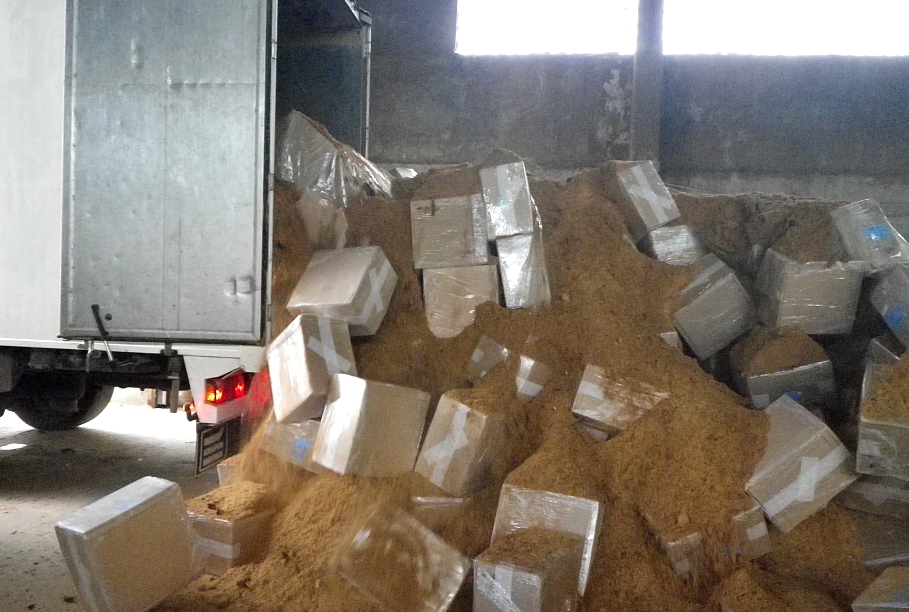Excise goods, primarily cigarettes, still make up the bulk of the smuggled products. They are conveyed in almost 70% from Belarus and 30% from Russia, where prices are substantially cheaper than in the EU. Smuggling from other sources within Europe comprise only 3% of the total illicit cross-border flow.
Last year Latvian police seized almost 50 million illegal cigarettes, which is nearly twice as many as in 2013 and a new annual record.
The acting Customs Police chief told LR that smugglers are a “savvy bunch”, always a half-step ahead of the customs officers. Cigarettes, for instance, have turned up inside transformers and other pieces of equipment and machinery where they have never been so painstakingly hidden before. Now the packaging the contraband products are wrapped in is sprayed with an odor-distracting substance to thwart otherwise foolproof canine detection units.
So the cat-and-mouse game goes on, as customs officers bust another innovative method, only to force the smugglers to come up with new tricks.
Kalniņš said the groups stretch across international borders, working not only within Latvian territory, although he said they are based in Latvia.
He pointed to the extended investigation and court trial process, which can stretch to several years, during which time the contrabandists can return to their illegal activities. Another problem is raised by the fact that VID operational personnel are prohibited from receiving pensions for their terms of service. Kalniņš remarked that to do this kind of job at, say the age of sixty years old, is hard.
At the same time, the level of contraband smuggling has fallen. Citing international studies, Kalniņš said that in the past decade the amount of illegal excise goods has dropped from 36.5% to 27.4%.





























